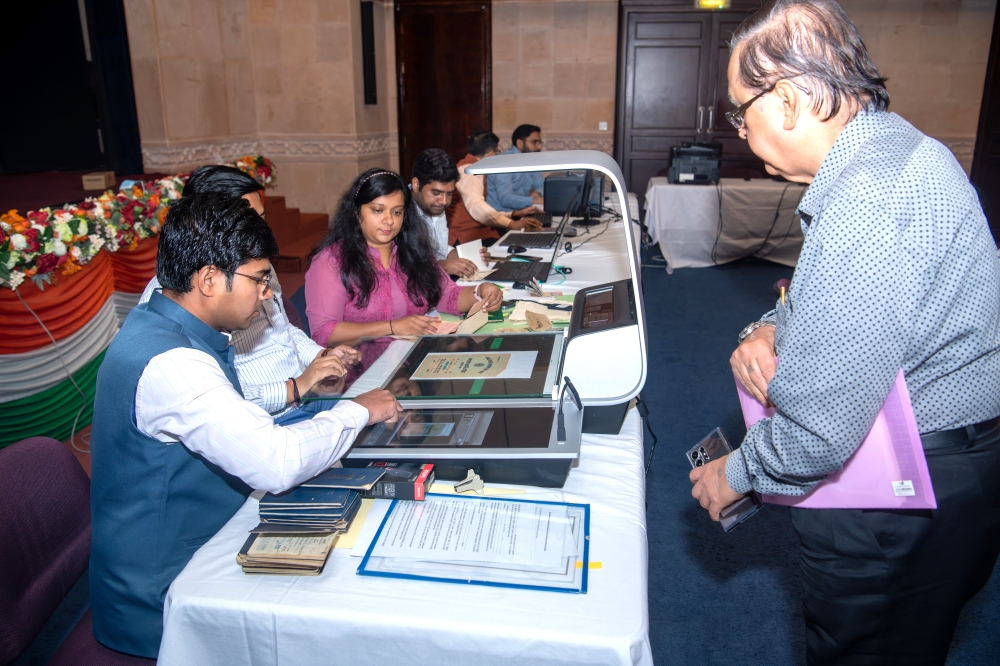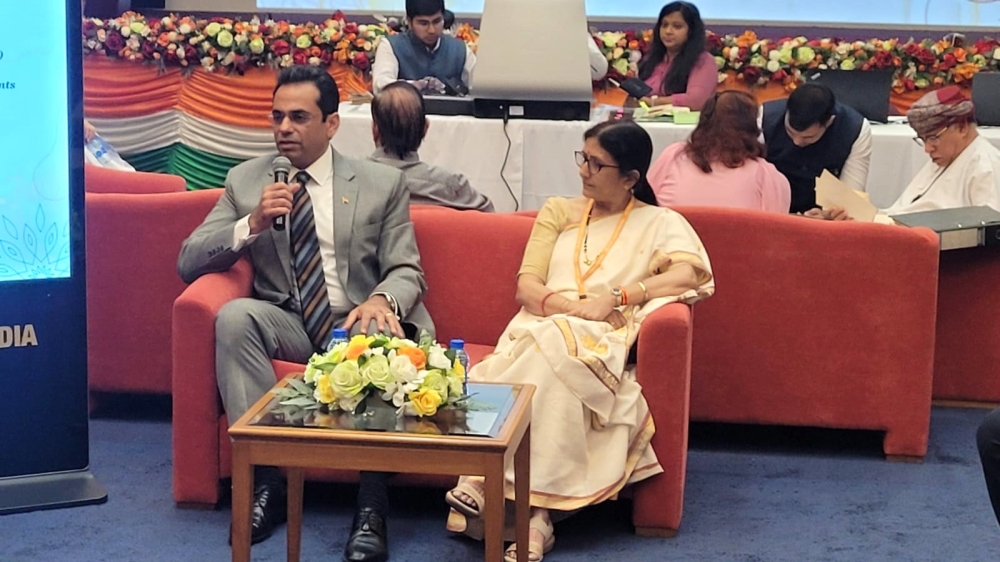

Muscat : Paper is perishable, but 7000 documents of 30 families that have been traders in Oman, dating back to centuries, have been now digitalised as an initiative of the Indian Embassy in cooperation with the National Archives of India and with logistical support of National Archives and Records Authority of Oman. One of the oldest documents is from 1838.
Titled, ‘Oman Collection’ - Preserving Archival Heritage of Indian Community in Oman’, is a special project, said the Indian Ambassador to the Sultanate of Oman, Amit Narang.
"We have been working on this project for the last two weeks at the Indian Embassy in Oman and as you can see the documents are still being recorded. This is the first time it is being done anywhere in the world. It is also the first time oral archives have been used in the National Archives of India. All of this will be available on the website benefiting the community and especially researchers in the future,” he said.
Noting the unique significance of this project, Shri Arun Singhal, Director General of the National Archives of India (NAI) stated, "This is the first time that we have collected and digitised the private archives of diaspora documents from abroad. This marks a historic milestone for the NAI and a significant step towards preserving the rich heritage and narratives of the diverse overseas Indian community."
The initiative was announced through the social media of the Embassy and 30 families came forward and for two weeks the NAI officials have been recording interviews and digitally copying the documents.
The scanned unique documents of diaspora are not just photographs, but include trade invoices, stamps, citations, telegrams, letters, correspondences and account books. Collectively they shed light on the fascinating lives and contributions of the Indian community.
“These documents show us how the people lived then, how they interacted with others, how they settled down and became part of the community,” said the Ambassador.
Oral archives - the faith people of Oman had for Indians who had come to conduct trade was impressive said an NAI official.
“We came across a story where an Omani family had given a pot of coins for safe keeping. In the beginning there were no check posts for Indians to enter Oman. They used to travel to Karachi and then cross the ocean to reach Oman,” said Kalpana Shukla of National Archives of India.

The documents collected and archived are in Arabic, Gujarati and English. The documents also portray the history of trade for instance dates being exported to India and Africa.
There are also documents of correspondence with British. Each document was verified, looked for the presence of signature, discussed and described, pointed out the Ambassador.
“We have guidelines. Some papers may not have date and signature but the subject and information could be extremely important. In that case we do carbon dating,” noted Shukla.
The documents will now be archived and uploaded on the NAI’s portal.
“We have had an excellent collaboration with the National Archives and Records Authority of Oman and an MoU has already been signed with National Archives of India. A joint exhibition is also expected.
For this project, two of the researchers from the Oman’s side were present every day and the logistical support was tremendous,” said Amit Narang, Ambassador of India to the Sultanate of Oman.
Oman Observer is now on the WhatsApp channel. Click here



